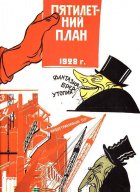
G Struve Veselaya Pesenka
Main article: ', is the more internationally famous version of the song. It was produced and recorded in late 1999 and released on May 9, 2000 by German group which is a cover of the Russian hit.
6 (54) Pesenka lvenka i cherepakhi (iz m/f «Kak lvenok i cherepakha peli pesnju») (G. Kozlov) (1:25) Poet O. Anofriev; instrumentalnyj ansambl p/u B. 7 (55) Dialog volka i kozljat (iz m/f «Volk i semero kozljat na novyj lad») (A. Rybnikov - Ju.
The song, their debut single from their debut album reached #1 in Germany, Austria and Switzerland, the Top 20 in Australia, Belgium, Canada, the Netherlands, Finland, France, Italy, Sweden, Denmark, Poland, Romania, and Scotland. It reached #24 in the, #15 on the and #28 on the US. BeFour version: 'Magic Melody' (2007) [ ] 'Magic Melody' by from the album 'Fly Around the World' Released June 14, 2007 Format Recorded January 1, 2007 Pop Length 3: 47 Pop 'N' Roll (original) (original) Christian Geller (additional) Christian Geller Adam Bernau singles chronology '/' ' Magic Melody' (2007) ' /' (2007) On January 1, 2007, the song was covered by, a German pop group founded in Cologne, under the title 'Magic Melody'. Released on June 14, 2007 it heavily samples on the song with changed lyrics and appears on the beFour debut album. The single made it to the top 20 only in Austria, Germany, and Switzerland.
Broadcast playout software. The version did not match the global success and impact of its original cover version by ATC. Track listings The CD maxi version contains the following tracks plus a beFour sticker as bonus: • 'Magic Melody' (3:39) • 'Fly Around the World' (3:47) • 'Wir sind' (2:18) Charts Chart (2007) Peak position Austrian Singles Chart 11 Eurochart Hot 100 45 German Singles Chart 16 Swiss Singles Chart 14 Year-end charts Chart (2007) Rank 91.
In the beginning of April 1917 the Provisional Government had discovered to its surprise that Russian finances, already for some time in quite bad shape, were on the brink of complete collapse. In an attempt to mend the situation, and stir enthusiastic patriotism, the government loudly, announced the issuance of domestic Freedom Loan bonds. Rumors about the loan had began circulating as early as March and Minister of Finance Tereshchenko informed the press that there were already multi-million pledges from bankers to buy bonds, “mainly from the Jewish bankers, which is undoubtedly related to the abolition of religious and national restrictions.” Indeed, as soon as the loan was officially announced, names of large Jewish subscribers began appearing in newspapers, accompanied by prominent front-page appeals: “Jewish citizens! Naskah drama untuk 8 orang pemain tentang persahabatan dalam keberagaman.
Subscribe to the Freedom Loan!” and “Every Jew must have the Freedom Loan bonds!” In a single subscription drive in a Moscow synagogue 22 million rubles was collected. During the first two days, Jews in Tiflis subscribed to 1.5 million rubles of bonds; Jews in Minsk – to half a million in the first week; the Saratov community – to 800 thousand rubles of bonds. In Kiev, the heirs of Brodsky and Klara Ginzburg each spent one million. The Jews abroad came forward as well: Jacob Schiff, 1 million; Rothschild in London, 1 million; in Paris, on the initiative of Baron Ginzburg, Russian Jews participated actively and subscribed to severalmillion worth of bonds.